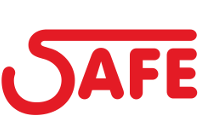The Cape Town-based producer and exporter of table grapes and citrus, SAFE (South African Fruit Exporters), is one of the first fruit producers and exporters in South Africa to implement a specially-customised version of the open-source accounting tool, Openbravo.
“Not only have we been keen to employ this best-of-breed software and latest technology available in this field, but using Openbravo also makes great financial sense. This step is perfectly in line with SAFE’s ongoing efforts to be innovative, forward-thinking and to stay relevant,” says Quentin Scott, Chief Financial Officer, SAFE.
Whereas SAFE used two systems before – a fruit-specific transactional system and an accounting system – it will now streamline its financial operation, employing a single system. This will allow the grower-exporter to collect and store all its data – including global data – in a single shared database, as well as to improve warehouse management.
“On top of this, the new system makes reporting much simpler. Previously we had to integrate two systems to arrive at one set of data on which we could base our reports. Now we have a single source of data, giving our accountants the full picture,” says Scott.
SAFE started implementing the new system’s first phase – pertaining to fruit – in March this year and should have it in place by the end of July, before kicking off with the direct cost phase. “This second phase we aim to wrap up in November – in time for the new table grape season,” says Kevin van der Merwe, Export Accountant, SAFE. The packing and processing phases will be carried out in 2018.
For SAFE the most important considerations of Openbravo is cutting out duplication and avoiding “double work and double costs”. “We’ve found that we’ve been spending a considerable amount of money on continually developing and licencing high-complex fruit-specific transactional systems, especially as they’re not full-blooded financial systems,” explains Scott.
“We don’t believe these fruit-specific systems to be the future, but that we should rather be looking at best commercial practice which we can standardise and set up to suit our specific business. The minute we can start making the rules, we can keep it simple,” he concludes.

